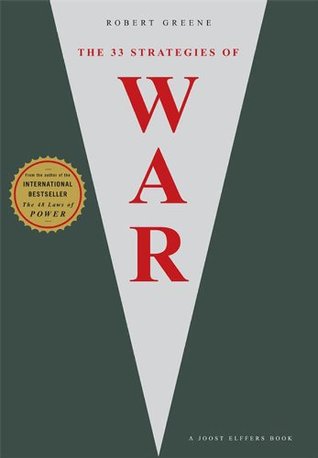More on this book
Community
Kindle Notes & Highlights
Started reading
February 9, 2019
The secret enemy, though, will react with anger. Any strong emotion and you will know that there’s something boiling under the surface. Often the best way to get people to reveal themselves is to provoke tension and argument.
Beware of people who hide behind a façade of vague abstractions and impartiality: no one is impartial. A sharply worded question, an opinion designed to offend, will make them react and take sides. Man exists only in so far as he is opposed. GEORG HEGEL, 1770–1831
The only way to break out of a negative dynamic is to confront it. Repressing your anger, avoiding the person threatening you, always looking to conciliate—these common strategies spell ruin. Avoidance of conflict becomes a habit, and you lose the taste for battle. Feeling guilty is pointless; it is not your fault you have enemies.
Being attacked is a sign that you are important enough to be a target. You should relish the attention and the chance to prove yourself.
Leaders have always found it useful to have an enemy at their gates in times of trouble, distracting the public from their difficulties. In using your enemies to rally your troops, polarize them as far as possible: they will fight the more fiercely when they feel a little hatred. So exaggerate the differences between you and the enemy—draw the lines clearly.
What limits individuals as well as nations is the inability to confront reality, to see things for what they are. As we grow older, we become more rooted in the past. Habit takes over. Something that has worked for us before becomes a doctrine, a shell to protect us from reality. Repetition replaces creativity.
I never read any treatises on strategy. . . . When we fight, we do not take any books with us. MAO TSE-TUNG, 1893–1976
Musashi’s opponents depended on brilliant technique, flashy swords, and unorthodox weapons. That is the same as fighting the last war: instead of responding to the moment, they relied on training, technology, and what had worked before. Musashi, who had grasped the essence of strategy when he was still very young, turned their rigidity into their downfall. His first thought was of the gambit that would take this particular opponent most by surprise. Then he would anchor himself in the moment: having set his opponent off balance with something unexpected, he would watch carefully, then respond
...more
What makes us go astray in the first place is that we are unattuned to the present moment, insensitive to the circumstances. We are listening to our own thoughts, reacting to things that happened in the past, applying theories and ideas that we digested long ago but that have nothing to do with our predicament in the present. More books, theories, and thinking only make the problem worse.
Knowledge, experience, and theory have limitations: no amount of thinking in advance can prepare you for the chaos of life, for the infinite possibilities of the moment.
The more we lose ourselves in predigested theories and past experiences, the more inappropriate and delusional our response.


